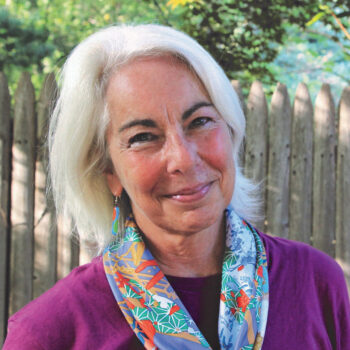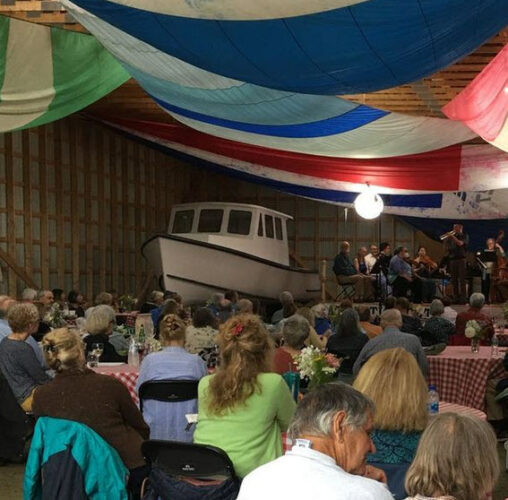by Judith Malafronte
Published May 29, 2023

As I write this, it’s audition season in music schools, and people are competing for spots and scholarships. But do they really need a degree in historical performance to enter the field of early music? Singers and instrumentalists, teachers, recent grads, and established professionals have very different views.
A recent Facebook thread about How to Earn a Living in Early Music elicited plenty of jokes, from “How early?” and “Define ‘living’ and define ‘earn,’” to the more pessimistic “Learn a trade” and “Be independently wealthy.” (A professional instrumentalist recently said to me, “How can anyone be a Baroque flute player without a trust fund?”)
Most instrumentalists are positive about the need for a specialized degree. One recent grad touts the immersive experience that allows a student to become fluent in “the language” and offers the opportunities to play lots of repertoire in large- and small-scale settings. “While one can learn a foreign language from a book, tape, Duolingo, etc., fluency only really comes from being immersed in that language for a long stretch of time.”
The historical-performance program at Juilliard is so successful that one Baroque ensemble contractor says that if he runs out of people on his “to hire” list, he confidently engages any of their graduates. But repertoire matters. One professional multi-instrumentalist told me, “You don’t learn anything about playing shawm/Renaissance recorder/dulcian/vielle/Medieval lute at Juilliard. But if you want to play Baroque music in NYC and the rest of the country, it’s pretty helpful to go through that program.” And a diploma alone isn’t enough. “If a lute player gets a master’s from Eastman, I imagine they can play well, but how can I know if they are a good musician and sensitive accompanist, or knows anything about playing 15th-century chansons or frottole?”
Others agree that training to be a Baroque specialist is completely different from training for earlier music. Even studying 17th-century repertoire involves learning that “language,” now that Handel, Vivaldi, Rameau, and Bach are mainstream Baroque and easily faked. Two established academics note that people used to get an early-music degree in order to get a tenure-track teaching and collegium job, which nowadays are rare and tend to go to choral conductors or musicologists.
In contrast to instrumentalists, singers are pessimistic about the need for an early-music degree. When people like Renée Fleming and Joyce DiDonato sing Baroque music without updating their conservatory techniques, and when Juilliard offers no vocal component to their HP program, why would any singer feel the need to go into debt in order to participate in specialized study?
Again, repertoire matters. But one singer-director picked up early-music skills in summer workshops and master classes and reminds us that singers are “forced to obey coaches, conductors, and stage directors without questioning them, so we must arm ourselves with information. This means having the correct historical and technical language as a reflex.” So, basically, singers need an early-music degree as defense, while instrumentalists need it for gigs.
For anyone considering a degree in early music, ask yourself, “What does the program offer?”
Can you have the highly prized immersive experience? Can you work on technique in relation to performance practice? Can you play or sing in both large and small ensembles? Are you guided to apply what you read in treatises? Is there room for self-directed study? Can you study notation, bibliography, Latin, repertoire, liturgy, dance forms, instrument building, poetry, and mythology? Is there a collegium where you can learn about transposition, arranging, making editions, and how various instruments and voices work?
How big is your department? For your continuo needs, do you work with staff professionals or with other struggling students? Is it good to be around conservatory students who are preparing piano concertos or opera arias for big competitions where their work ethic might inspire you? Is your program its own little enclave, or are there opportunities to collaborate with dance, theater, language, and literature departments? What showcases does your program offer? Do local conductors come to hear you? Are there opportunities for master classes, auditions, field trips, or exposure to leaders in the field who might hire you after graduation?
Does your program encourage chamber music situations where singers and instrumentalists learn to talk to each other about technique, rehearsing, balance, tempos, keys, tuning, and other performance needs, or are you just told what to do? What scholarly pursuits are involved? Are you required to make your own editions or write program notes for your performances? Can the school lend you instruments? Can a violinist explore the viol or vielle? Can a singer take up the lute? Can you explore early pronunciation of English and foreign languages? Can you study enough Medieval theory to craft an introduction or collaborative line to a troubadour song? Are you exposed to Baroque dance to aid your understanding of tempo, phrasing, and mood? Do you read Tasso, Ariosto, and the important epics? Does it matter?
Mezzo-soprano Judith Malafronte teaches in the Historical Performance department of Indiana University’s Jacobs School of Music and writes for Opera News and other arts publications nationwide.




